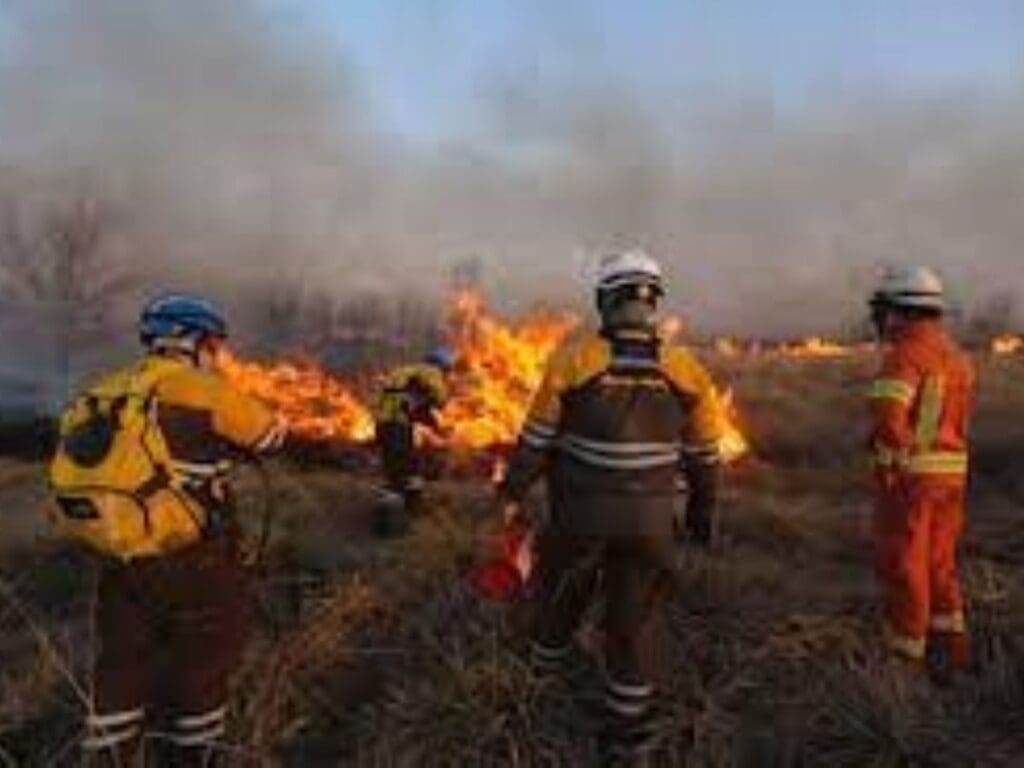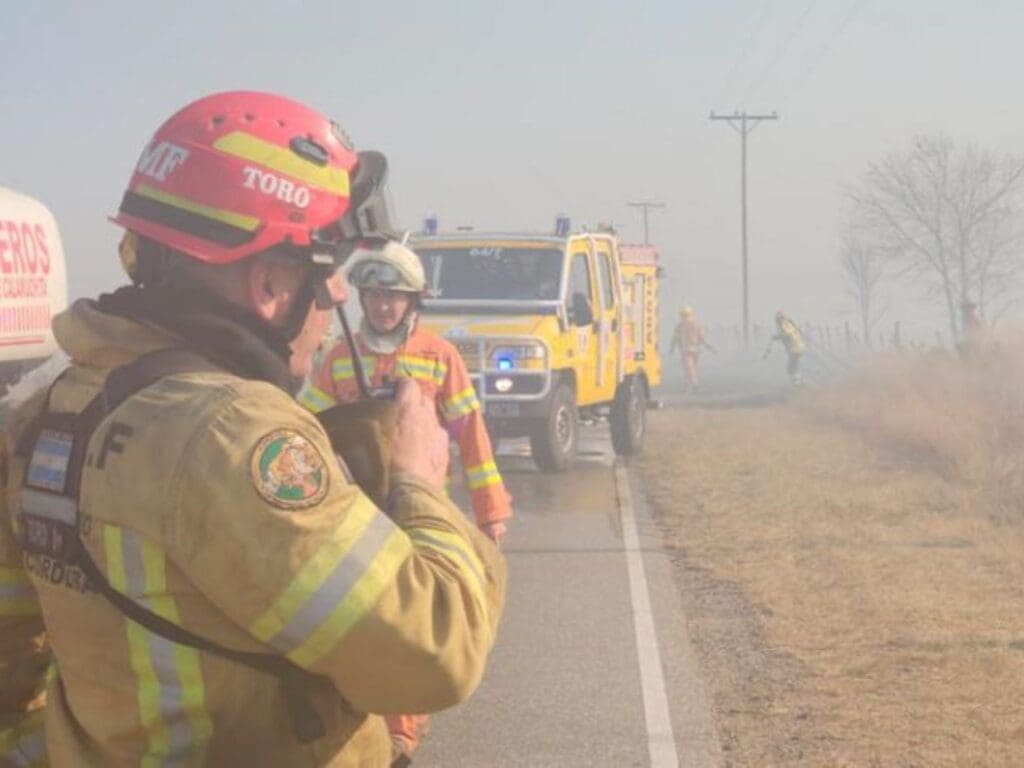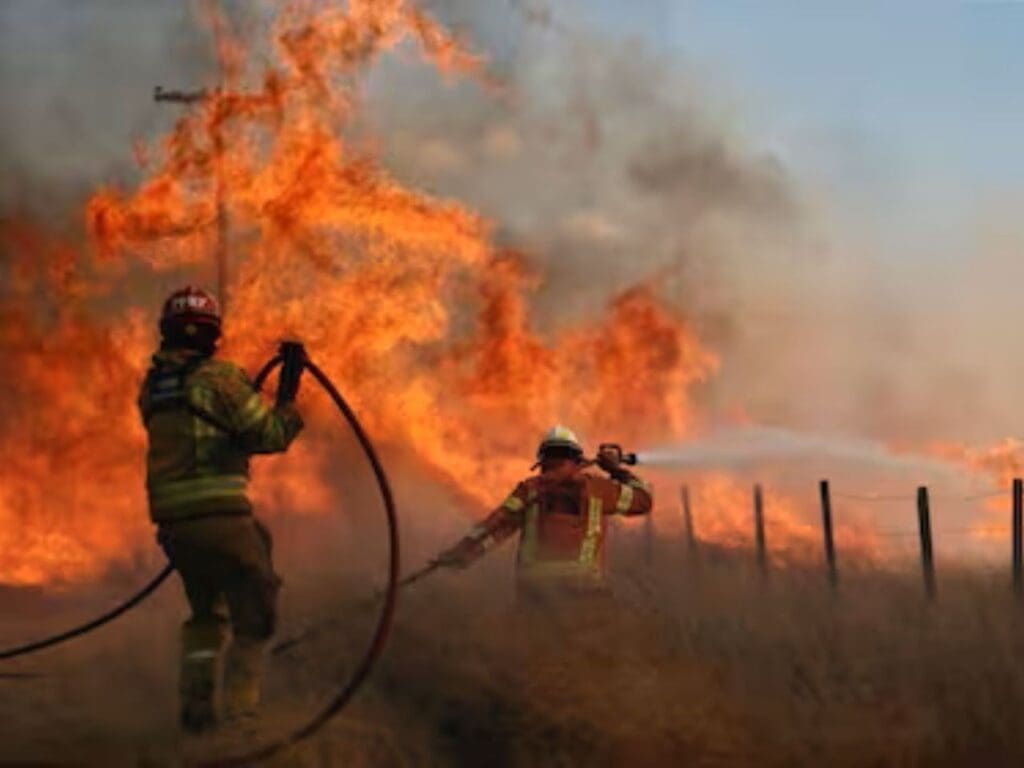Firefighter battles catastrophic blaze, unprecedented wind gusts as inferno eats up houses
We knew the dreaded fires were coming as temperatures soared and gusty winds filled the forecast. “If there is one spark, everything burns,” I said out loud. Then it happened. We watched in horror as the explosive behavior of the fire moved like a living, breathing thing.
- 10 months ago
September 20, 2023

CÓRDOBA, Argentina ꟷ On a windy day in the sweltering heat, three large fires broke out in Córdoba. As the Secretary of Climate Risk Management and Catastrophes in the province, my colleagues and I found ourselves in an unprecedented, complicated situation. The airplanes could not fly in the brutal winds and more than 100 firefighters toiled to contain the blaze. Our number one priority remained the lives of the residents and the properties in the area. We put every person and piece of machinery to use to take care of them.
Forceful wind gusts and soaring temperatures fueled the blazing fires that ate up homes
We knew the dreaded fires were coming as temperatures soared and gusty winds filled the forecast. “If there is one spark, everything burns,” I said out loud. Then it happened. We watched in horror as the explosive behavior of the fires moved like a living, breathing thing. We could barely believe our eyes as the winds suddenly swirled out of control. The forceful gusts grounded the hydrant planes, and we quickly adjusted the strategy, going from fire to fire. We had no other choice.
Deep grief pervaded each of us as the fire ate up 12 houses, but we saved 150 others. Working together with seven fire stations, a hydrant plane, and the Technical Team for Disaster Action (ETAC), we faced a new extreme – 150 kilometer per hour wind gusts (93 mph). Our attempt to extinguish and contain the fires became incredibly complicated. When the alert sounded indicating extreme risk of forest fires throughout the province, we felt desperate.
Temperatures began to soar, exceeding 30 degrees Celsius (nearly 90 degrees Fahrenheit), and the teams became exhausted. The fires gave us no respite, so we waited for a window. When the wind dropped we sprung into action and in that moment, we contained the blaze.
Emergency workers fight for life in the face of suffocating heat
I carry a bitterness inside myself from fires in the past. Ten years ago, we faced a fierce foe – the fire in Villa Yacanto that destroyed 24 homes. We evacuated the entire town and moved people to the municipal club which we converted into an evacuee center. Still, people died – women, children, friends, and colleagues. Carrying this horror with me, my number one priority is to save lives.
As a leader, I encourage my team to communicate, including 1,000 personnel and volunteer firefighters. I tell them to take everything you’ve done, everything you’ve studied, and everything you’ve trained for and throw it on the table. To do so is to save a life. We can recover material things, but life is irrevocable. People who work in emergency situations understand this at a deep level.
We often face suffocating heat fueled by extreme winds that power the flames and blow excruciating air at us. As we fight and resist, powerful tongues of fire envelop and consume everything around them. With our bodies and our hearts, we evacuate houses and cut off roads to prevent the blaze from advancing on asphalt and claiming more victims.
Fighting fires is like a wrestling match: sometimes you win, sometimes you lose
When my mind drifts back to the fires of the past it often settles upon the inhabitants of Potrero de Garay who suffered horror when the flames devastated 500 hectares of land and consumed 80 houses. It was one of the most terrible fires I ever saw. I remember the rural workers who, on August 18, 2003, burned to death trying to round up their cattle, leaving four children orphaned.
Also, that day, amidst the flames that devastated the pine forests, a 60-year-old teacher died. The inferno started in a pasture, gained power in the fields, and found its perfect fuel for explosion in the resin of the pine trees. Fifteen hundred people awoke that day to the crackling of flames and the explosion of pinecones like natural grenades.
Equipped with four hydrant planes, helicopters, and other equipment provided by the national government, we went to work. We often suffer a sense of helplessness when only five of ten maneuvers prove successful. The fire gains on you, twisting your hand like a bully, forcing you to back away. You regroup, take care of yourself, and reemerge. Finally, we surrounded the beast with a fan of water, and we won – watching it grow smaller and smaller until it finally extinguished.


Though I often feel frustration when maneuvers fail because I know lives are the line, that frustration evaporates immediately when you twist the arm of the fire. It always becomes a wrestling match. Sometimes you win; sometimes you lose. What I love the most about my work is protecting lives. Seeing the emotion on people’s faces offers me a priceless truth: that all lives matter. We hug and cry as they say, “thank you,” their voices cracking.




























































































































































































